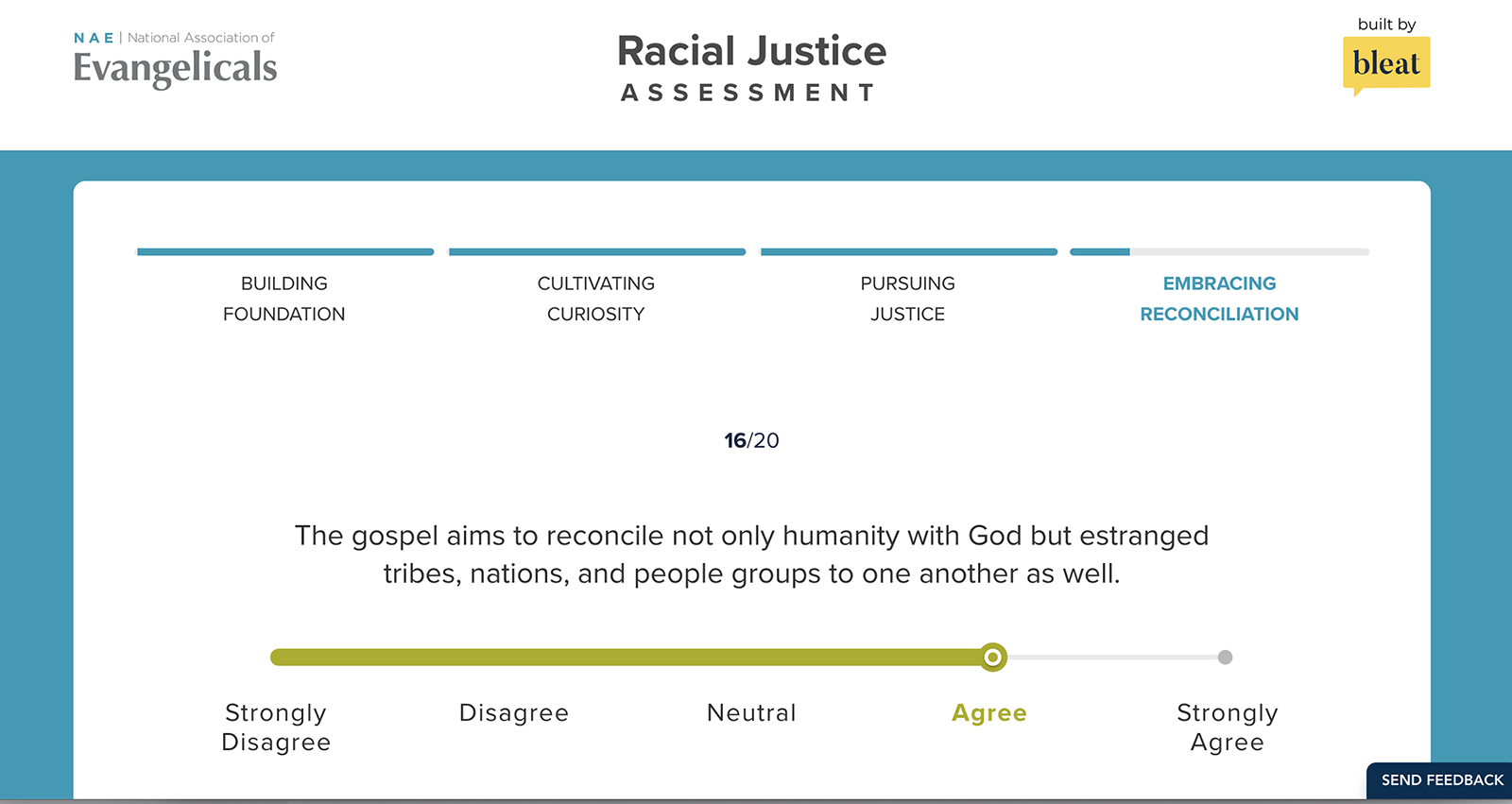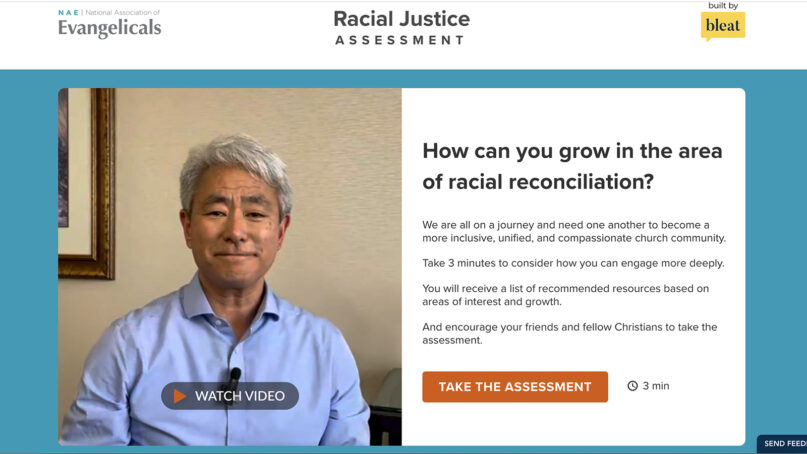(RNS) — The National Association of Evangelicals has launched a new resource to help Christians assess where they stand on racial justice and then take appropriate next steps to further race relations.
The online “Racial Justice Assessment tool,” posted on the organization’s website Monday (Sept. 25), is designed to provide users with suggestions of books, videos, articles and online courses to consider based on their answers to a brief survey about racism and equality.
Recommendations include books by best-selling Christian authors Jemar Tisby and Tim Keller, the writings of Ta-Nehisi Coates and the Rev. Martin Luther King Jr., a video on race in the U.S. by VeggieTales creator Phil Vischer and a New York Times video series on conversations about race with people of different racial and ethnic groups.
“We at the NAE have developed this tool to help you explore opportunities for growth and to engage in topics that might challenge, encourage and inspire you,” said NAE President Walter Kim in a brief video message that welcomes viewers to the three-minute assessment. “The Bible teaches the essential dignity of all humans and our shared desire to live in community. Yet the reality of sin results in the denigration, alienation and injustice that we see before us.”
The NAE hired Mekdes Haddis last year as project director of its new Racial Justice and Reconciliation Collaborative.

Mekdes Haddis, director of the National Association of Evangelicals’ new Racial Justice & Reconciliation Collaborative. Photo courtesy of NAE
She said she has spent months meeting with representatives of some of the dozens of NAE member denominations and other partners to learn what would be most helpful. Some said they wanted to “help people realize that they lack an understanding” of race-related matters or hoped participants would be convinced to get more engaged on topics of racial justice.
RELATED: National Association of Evangelicals launches racial justice collaborative
“We didn’t really want to recreate the wheel,” said Haddis, in an interview with Religion News Service ahead of Monday’s launch. “We wanted to bridge a gap that was existing.”
She said the tool is designed for people who’ve already read a book or watched a webinar and want to move on to next steps but also for those who haven’t taken any steps as of yet.
“Whether you’re curious and kind of unengaged or suspicious or whether you’re very excitingly pursuing justice,” she said, “for everybody, we’re recommending a step forward.”
Recent research has shown gaps between how different religious groups view racial matters, including when they are asked which is the bigger problem in the U.S.: people overlooking racism when it exists or seeing racism where none exists. Majorities of white evangelicals (72%), as well as white Catholics (60%) and white mainline Protestants (54%), told Pew Research Center that claims about racism where there is none was the bigger issue. Far fewer Black Protestants (10%), non-Christian religious Americans (31%) and unaffiliated Americans (35%) agreed.

A sample statement from the National Association of Evangelicals’ new Racial Justice Assessment tool. Screen grab
Haddis, who is an Ethiopian American, said she hopes the assessment and the recommended resources will give participants a sense of what is being said inside and beyond church circles about these issues.
“We felt like it was important to engage in what’s happening outside of our Christian bubble,” she said.
The collaborative hopes to continue to expand its offerings, including a fall retreat for Black and Indigenous people of color that aims to provide “spiritual encouragement” for evangelical leaders who work on racial justice and reconciliation, lead predominantly white organizations or are involved in starting multiethnic churches.
RELATED: White Christians think too many people see racism when it’s not there, new survey finds





